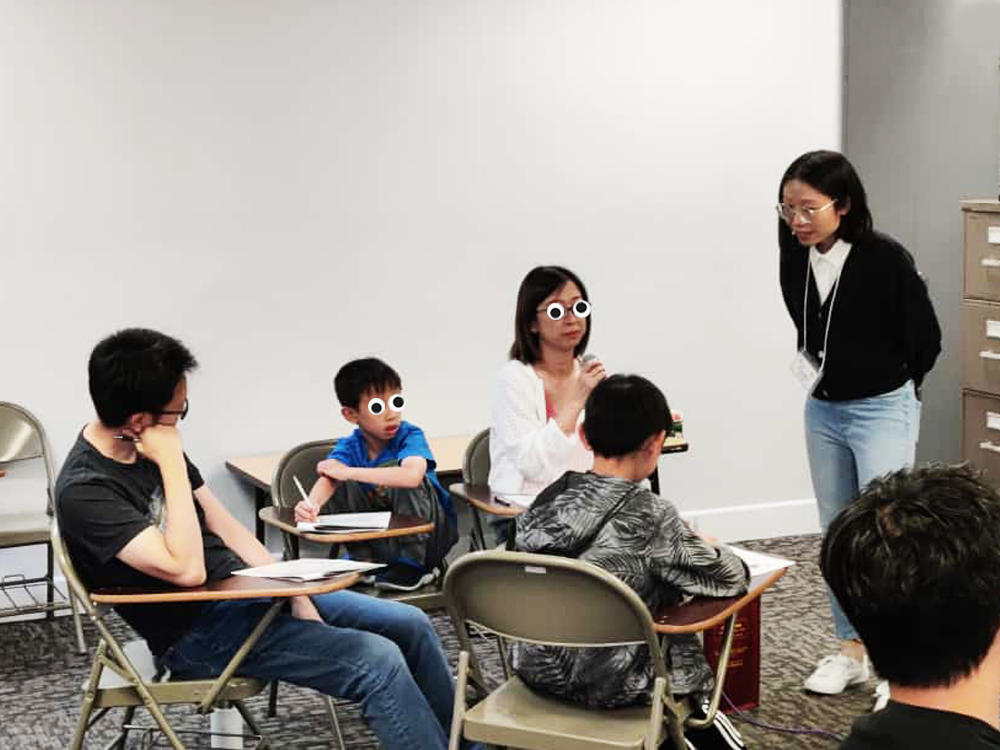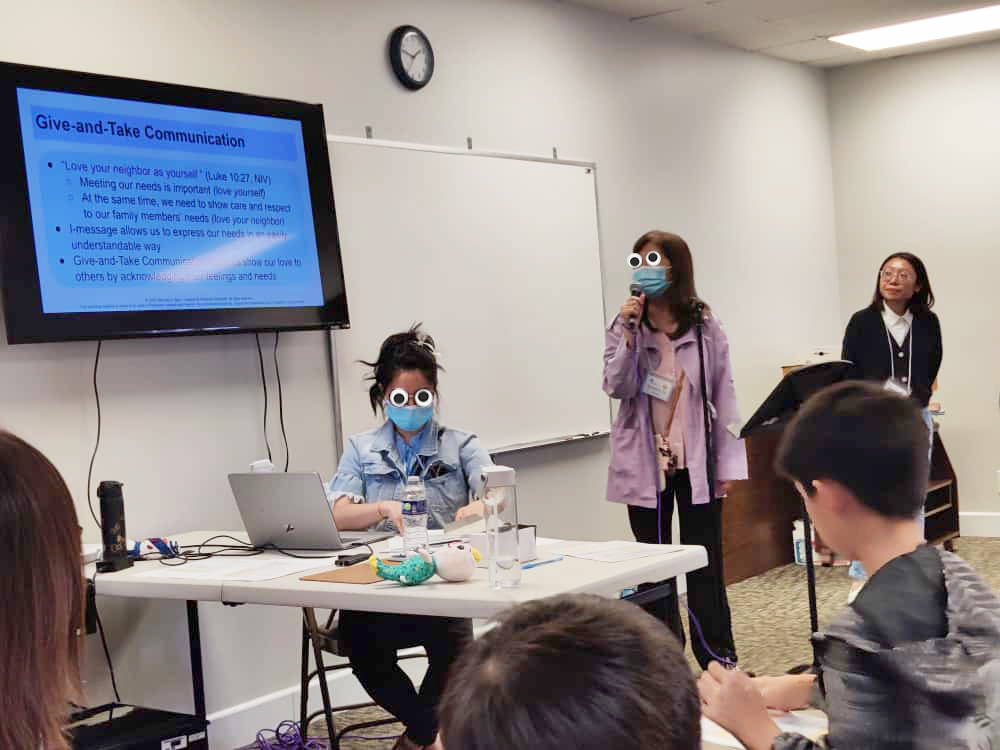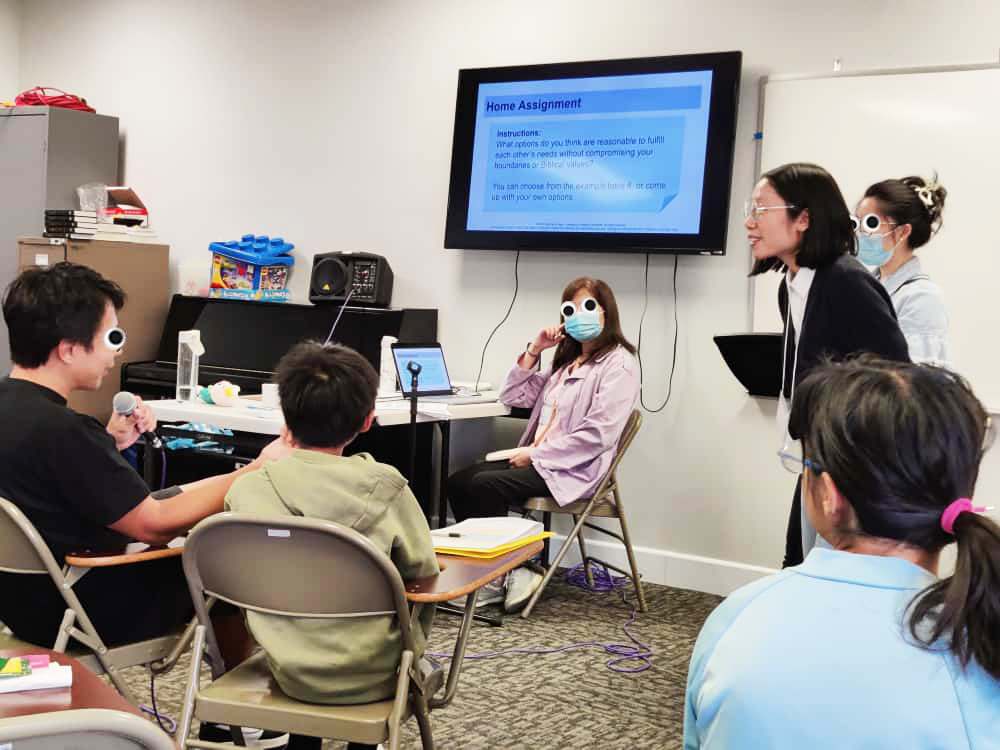Blog
"Practicing What We Teach: Co-Facilitating Faith-Informed Family Workshops"

On September 27, 2025, I had the joy of serving as a guest lecturer for two intergenerational parent–child communication workshops focused on children ages 6–12 and their caregivers. I co-taught alongside two experienced family educators, each bringing deep care and insight to the space. Across both sessions, we worked with 27 participants representing 8 families from bilingual (English–Mandarin or Cantonese-speaking) Asian American congregations in the Los Angeles area.
The broader event, hosted in partnership with Mandarin Baptist Church of Los Angeles to celebrate Presence Quotient’s 22nd anniversary, served a total of 107 participants across all concurrent workshops. Families attended classes designed specifically for children ages 3–5, 6–12, teens, and adult children, each offering developmentally tailored ways to strengthen empathy, communication, and understanding through a biblical framework.

Teaching the 6–12 Curriculum
In the 6–12 workshop I taught, families practiced relational tools to express emotions and needs with care and clarity. Using “I-messages” (I feel … when … because … I would like …), participants explored how to speak honestly without blame, how tone and body language shape connection, and how to engage in give-and-take conversations that embody biblical values of love, humility, and mutual respect.
The curriculum’s message. that “Love your neighbor as yourself” (Luke 10:27) begins within the family, revealed itself in subtle ways. Some children were hesitant to speak up, uncertain about voicing disagreement with their parents. One parent appeared anxious and expressed feeling disconnected when trying to set limits. These moments stood out to me because they reflected the real complexity of family life: love and care are present, but so are fear, uncertainty, and longing. Watching families navigate these tensions reminded me that growth often happens in quiet, imperfect exchanges, when we choose to listen, stay patient, and keep trying to understand one another.

Reflections and Takeaways
During the second session, a few younger children became visibly dysregulated, restless, loud, and struggling to stay engaged. From my practicum experience, I’ve learned that behavior often signals basic unmet needs. When children are hungry, thirsty, or overstimulated, their capacity to focus and connect disappears quickly. Once those needs were met, a sip of water, a small snack, a short break, the kids settled.
That moment reminded me that connection starts with care. Before teaching communication or boundaries, we have to ensure the foundation is there: that children feel safe, seen, and supported. Sometimes the most meaningful work isn’t about technique. It’s about paying attention to what someone truly needs in order to show up.